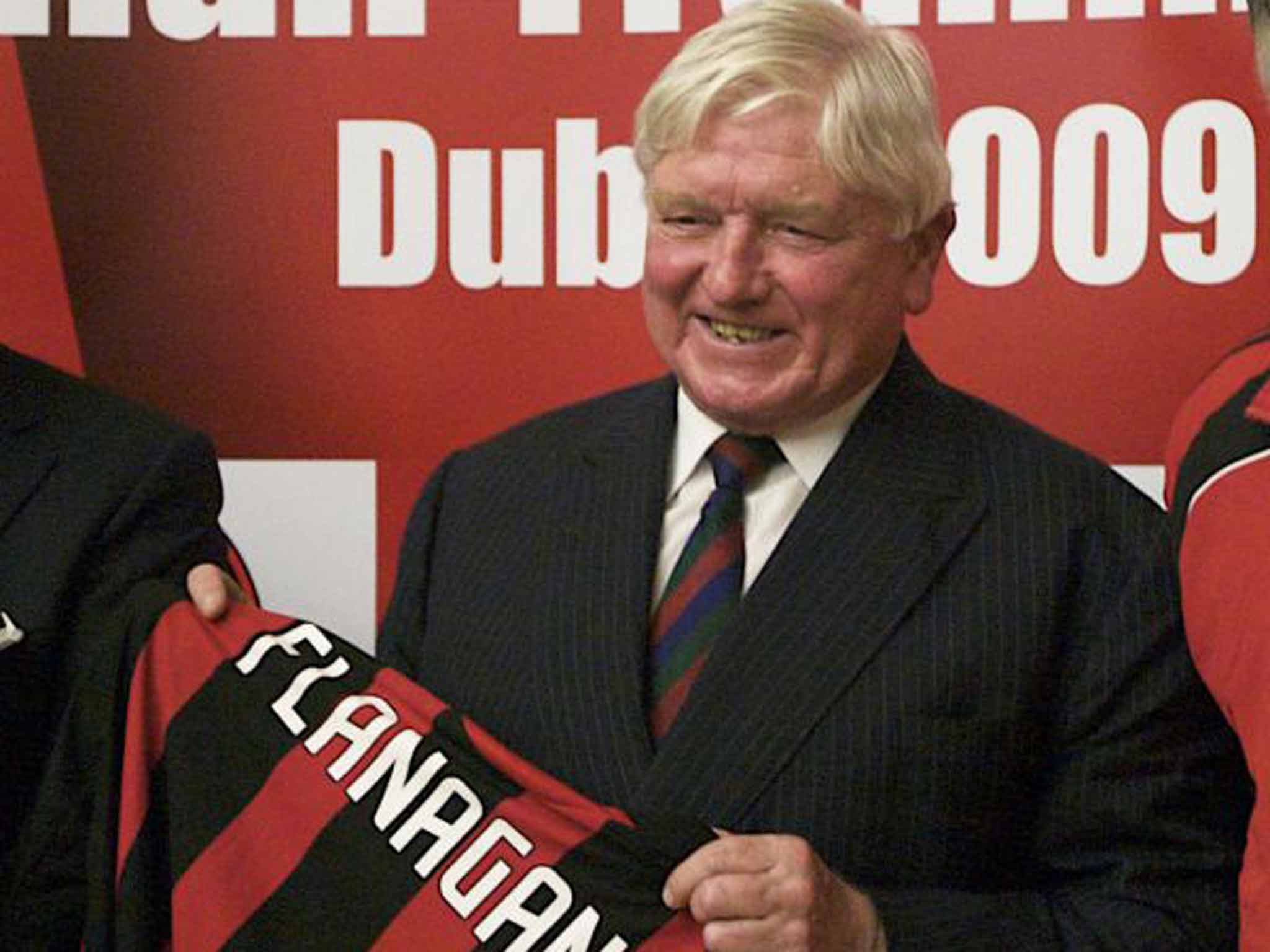Aviation boss who started at BOAC and went on to make Emirates one of the world's most successful airlines
Serving as a navigator in the RAF he fell and injured his knee, preventing him from pursuing a career as a footballer

Maurice Flanagan was Emirates Airline's founding chief executive who built the company into the world's largest international airline. A veteran British Airways executive, he led a 10-man team that started Emirates in 1985 with $10m and two rented planes. He retired in 2013 as executive vice chairman.
The airline Flanagan created became known for its opulent service and aggressive expansionism. It was the first carrier to offer first-class travellers private on-board mini-suites, with dining tables and "massage-enabled" leather chairs, and was an early adopter of the latest aircraft and seat-back entertainment screens. After ranking 24th among international airlines by passenger traffic in 2000, Emirates overtook Lufthansa as the world leader in 2009.
Flanagan, who Forbes Global described in 2002 as having "aviation fuel running through his veins", was often called to rebut charges by rivals that the company's success relied on government subsidies. "When we started in 1985, the rules were quite clear," he said. "The sheik said, 'Here's $10m, don't come back for more.' We get nothing special."
Contributing to Emirates' growth was its willingness to meet demand for service in troubled parts of the world. It continued to fly during the first Gulf War in 1991, when some other airlines suspended operations. Today it serves 140 destinations in 80 countries with a fleet of more than 230 aircraft.
Maurice Flanagan was born in 1928 in Leigh, Lancashire and graduated in English and French from Liverpool University. Serving as a navigator in the RAF he fell and injured his knee, preventing him from pursuing a career as a footballer. Instead he joined BOAC, predecessor to British Airways, in 1953 and worked in overseas postings. He became route planning manager in 1965. "There is something about the airline industry that really grabbed me," he recalled.
In 1978 he moved to Dubai to run dnata, the state travel services company. Speaking last February, he recalled that at the time the city lacked highways and skyscrapers – but, he said, "Even then you could taste the dynamism in the air." The fledgling airline's first destinations were Karachi and Mumbai. Describing the carrier's growth, Flanagan pointed to the location of its Dubai base. The emirate is "perfectly located to be the global hub of this century," he said.
Jovial in interviews, Flanagan professed to being the "oldest and deafest" of his airline-executive peers. During his RAF service, he said, wearing hearing protectors marked one out as a "sissy". At Emirates, he redirected his interest in football to make the airline a sponsor of Arsenal FC. In 2004, the company agreed to pay £100m for the naming rights of the club's new stadium and putting the Emirates logo on shirts until 2021.
Maurice Flanagan, aviation executive: born Leigh, Lancashire 17 November 1928; CBE 2000, KBE 2010; married 1955 Audrey Bolton (two daughters, one son); died 7 May 2015.
© Bloomberg News
Subscribe to Independent Premium to bookmark this article
Want to bookmark your favourite articles and stories to read or reference later? Start your Independent Premium subscription today.

Join our commenting forum
Join thought-provoking conversations, follow other Independent readers and see their replies